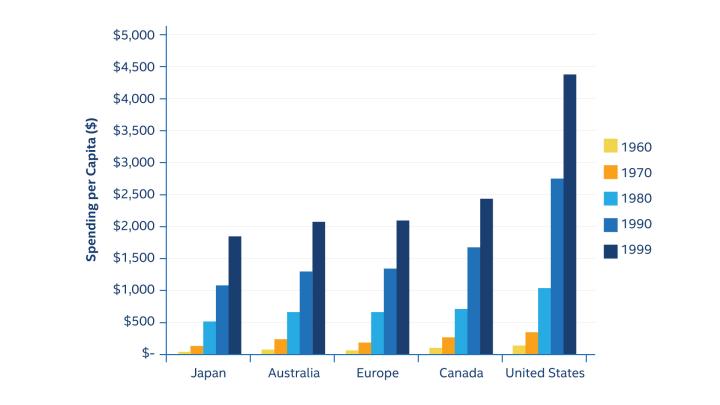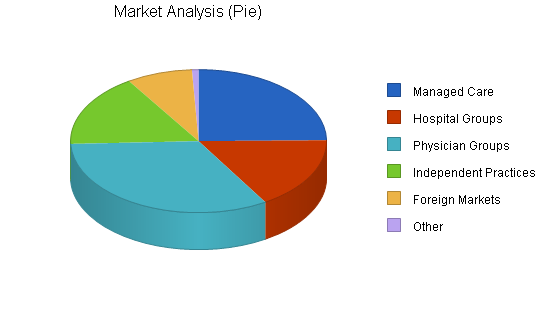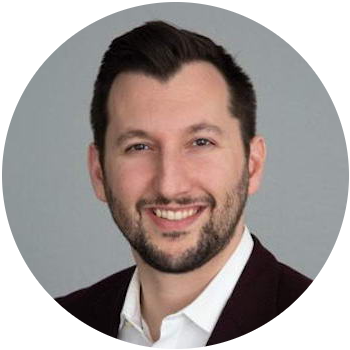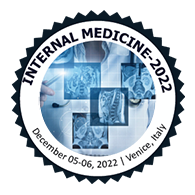About Conference
21st Edition of Global Summit on Internal Medicine and Healthcare (Internal Medicine 2022) is the event organizing by conferenceseries.com from December 05-06, 2022 Venice, Italy. The theme of this meeting is "Revealing current Research and Advancements in Internal Medicine and Health Care" where you can get a platform to share your ideas and research work to the world. Internal Medicine conferences aim to promote continuous medical education and encourage a nourishing exchange of facts and ideas in how to deal with the disorders involving patients.
Conference series LLC LTD organizes about over 1000 Global Events which are inclusive of the 400+ Conferences, 300+ Workshops and about 300+ Symposiums every year throughout the world across Asia-Pacific, Europe, & USA with the support of over 1000 scientific societies, while having already published about more than 500 open access journals containing over 50,000 eminent and reputed scientists as editorial board members.
The conference proceedings include Keynote speeches, Exhibition, Plenary talks, Workshops, Symposiums, Poster sessions, B2B networking and Panel discussions on the latest research developments in the field of Internal Medicine.
Why to Attend?
The Internal Medicine and Healthcare 2022 Congress will provide the perfect opportunity to develop internal medicine as a specialist area with a focus on general physicians, connect with colleagues around the globe, encourage young doctors to specialize and continue developing this amazing field of medicine. The Congress will update and expand knowledge on all aspects of internal medicine focusing on practical aspects of management, diagnosis and treatment
Who Should Attend?
Deans/Chairs, Vice Deans & Vice Presidents of Medical Institutions and Hospitals
Professors and students from academia who are in the field of research, Medical and clinical research.
Physicians, Business delegates, Directors / Managers & Business Intelligence Experts, Departmental Managers
Conference Highlights & Benefits
Keynote Sessions on Internal Medicine
Oral presentations on Internal Medicine
Young Researcher Forums
Poster Presentations on Internal Medicine
Video Presentations on Internal Medicine
E-poster Presentations on Internal Medicine
Honorable Guests Presentations
Exhibitions on Internal Medicine
CME Felicitations and Certifications
Free Abstract Publication & DOI
Free Lunch and Networking
Questionnaires on Internal Medicine
Sessions and Tracks
Track:1 Adolescent medicine:
Adolescent medicine often referred to as adolescent and young adult medicine is a branch of medicine that specializes in treating patients who are still in the adolescent stage of life. Puberty marks the beginning of this phase, which lasts until all growth has ended and maturity has begun. A teenager who has started puberty but is not yet an adult. A kid goes through physical, hormonal, and developmental changes during adolescence that signal the start of adulthood
Track:2 Adult Congenital Heart Disease:
Adult congenital heart disease (ACHD) is a catch-all term for disorders that affect the structure of your heart and are present at birth. Congenital refers to a defect that develops during pregnancy and is present at birth. Your heart's ability to pump blood is affected by certain disorders. Additionally known as congenital cardiac defects. Milder to more serious congenital heart conditions exist. People may not experience any signs of cardiac disease until they are adults, depending on the type and severity of the condition. Other folks hardly ever experience symptoms. Others receive treatment for these diseases as youngsters, only to develop signs of their long-term effects as adults
Track:3 Advanced Heart Failure and Transplant Cardiology:
Heart Failure and Transplant Cardiology focuses on managing advanced or difficult heart failure outside the realm of what is often offered by general internists and general cardiologists. It is an advanced training in cardiovascular illness. The capacity to use a wide range of electro physiologic and hemodynamic support devices, complex percutaneous and surgical procedures, and the ability to treat patients with difficult-to-control heart failure are all included in this. Prospective heart transplant candidates are also evaluated. Cardiologists who specialize in heart failure and transplantation frequently work in settings that include cardiology clinics and facilities that offer cardiac transplantation. However, a large part of practice is frequently providing consulting and co-management services to other doctors who are managing patients with heart failure
Track:4 Clinical cardiac electrophysiology:
Advanced training in cardiovascular disease is represented by clinical cardiac electrophysiology, which focuses on managing complex cardiac electro physiologic heart disease. These internists, who are frequently referred to as "electro physiologists," have received training in the mechanism, purpose, and execution of the electrical activities of the heart. Electro physiologists assess patients with severe heart rhythm abnormalities and provide management support (arrhythmias). They have received training in both invasive and noninvasive diagnostic techniques, including tilt-table testing and electro physiologic tests, as well as how to treat arrhythmias using interventional techniques, medicine, and devices like pacemakers and cardioverters (such as catheter ablation). Cardiologists that specialize in cardiac electrophysiology frequently work in hospitals and clinics where these problems are identified and treated
Track:5 Interventional cardiology:
In order to diagnose and treat coronary artery disease, vascular disease, structural heart disease, and congenital heart defects, interventional cardiology uses specialized catheter-based procedures. Interventional cardiologists monitor cardiovascular functions including blood pressure and blood flow in significant arteries across the body and within the various heart chambers using a variety of diagnostic equipment and imaging techniques. Traditional "open" cardiac procedures are not carried out by interventional cardiologists
Alzheimers-2023| Pharmaceuticals-2023|Dentistry-2023|ENT-2023| Nursing Education-2023| Organic Farming-2023| Nanotechnology 2023| Aquaculture-2023| AgriEconomics - 2023| Oncology - 2023| Pediatric Neurology - 2023| Rehabilitation-2023|
Track:6 Geriatric medicine:
In acute, chronic, rehabilitative, preventive, and end-of-life treatment for older patients, geriatric medicine addresses physical, mental, functional, and social issues. This particular patient population is thought to be high fragile and to have numerous current pathologies, necessitating a holistic therapy. Diseases may manifest differently in older people, are frequently very difficult to diagnose, frequently take longer to respond to treatment, and frequently necessitate social assistance. Therefore, geriatric medicine goes beyond organ-focused care by providing extra therapy in a multidisciplinary team environment, with the primary goal of optimizing the functional state of the elderly person and enhancing quality of life and autonomy
Track:7 Medical oncology:
The diagnosis, therapy, and prevention of cancer are the main goals of the medical specialty known as medical oncology. Treatment for cancer patients by a medical oncologist may involve chemotherapy, hormone therapy, targeted therapy, or immunotherapy. A medical oncologist will collaborate with other physicians to develop the best treatment strategy for you. Your cancer diagnosis will be explained to you, along with its type and stage. You can manage your cancer symptoms and side effects with their assistance
Track:8 Cardiovascular Disease:
Conditions affecting the heart or blood vessels are collectively referred to as cardiovascular disease (CVD). Atherosclerosis, a buildup of fatty deposits inside the arteries, and a higher risk of blood clots are typically connected with it. It may also be linked to artery damage in several organs, including the kidneys, eyes, heart, brain, and heart. One of the biggest causes of death and disability is CVD, yet it is frequently significantly avoidable by adopting a healthy lifestyle. There are numerous varieties of CVD
Track:9 Endocrinology:
Hormones are the subject of endocrinology. For our daily survival, hormones are necessary. They regulate our growth, emotion, stress, sleep, and many other factors. A doctor who specializes in treating disorders brought on by hormonal imbalances is an endocrinologist. A chemical messenger called a hormone moves from one cell to another. The bloodstream carries hormones from one area of the body to another, where they have an impact. This makes it easier for various body sections to communicate with one another. Endocrine glands, such as the pituitary, thyroid, or adrenal glands, release hormones. Endocrine glands are not all types of glands; for instance, sweat glands and lymph nodes are not endocrine glands
Track:10 Nephrology:
The field of internal medicine known as nephrology is a specialization that focuses on the identification and management of kidney-related illnesses. The kidneys are the bean-shaped organs that are positioned on either side in the retroperitoneal area in a human body. The kidneys are in charge of eliminating waste and extra fluid from the body. They are essential for maintaining electrolyte concentrations, which might fluctuate due to a variety of illnesses or medications, and for maintaining fluid consumption. Many renal issues are systemic illnesses, meaning they affect more than just the kidney. These elements require specific care and medical attention
Alzheimers-2023| Pharmaceuticals-2023|Dentistry-2023|ENT-2023| Nursing Education-2023| Organic Farming-2023| Nanotechnology 2023| Aquaculture-2023| AgriEconomics - 2023| Oncology - 2023| Pediatric Neurology - 2023| Rehabilitation-2023|
Track:11 Hospice & Palliative Medicine:
The leading peer-reviewed open access publication devoted to all facets of palliative care for the terminally ill and those experiencing excruciating pain because of a chronic illness is called Hospice & Palliative Medicine International Journal (HPMIJ). Palliative care can assist in controlling symptoms, suffering, or negative therapeutic side effects. It can aid people in coping with their emotions related to having a serious illness. Additionally, it can aid in communication so that everyone involved in a patient's care is aware of their common objectives. Even preparing for future medical treatment could benefit from it. The team members who are involved in this treatment, including doctors, nurses, pharmacists, social workers, pastoral counselors, psychologists, programmed administrators, and any other specialty, will find this publication to be of interest. Each manuscript submitted for publication in this magazine
Track:12 Gastroenterology:
The area of medicine dedicated to problems of the digestive system is called gastroenterology. The focus of this specialty is on conditions affecting the gastrointestinal tract, which includes the organs from the mouth into the stomach through the elementary canal. These medical professionals are known as gastroenterologists. They typically have eight years of pre-medical and medical education under their belts, a year-long internship (if it is not included in the residency), three years of internal medicine residency, and three years of gastroenterology fellowship. Colonoscopy, esophagogastroduodenoscopy (EGD), endoscopic retrograde cholangiopancreatography (ERCP), endoscopic ultrasound (EUS), and liver biopsy are among the diagnostic and therapeutic procedures carried out by gastroenterologists. Although this is frequently their seventh year of graduate medical study, some gastrointestinal trainees will finish a "fourth-year" in this field
Track:13 Infectious disease:
Infectious diseases are illnesses brought on by pathogens, which are dangerous substances that enter your body. Viruses, bacteria, fungus, and parasites are the most frequent culprits. Typically, infectious diseases are passed from one person to another, through tainted food or drink, and through insect bites. Infectious diseases can range in severity from very mild to very serious
Track:14 Hematology:
The science or study of blood and blood disorders is known as hematology. Hematology is the study and practice of treating diseases of the blood, including sickle cell anemia, leukemia, lymphoma, myeloma, and many types of hemophilia. The physiology, pathology, etiology, diagnosis, treatment, prognosis, and prevention of blood-related illnesses are all covered under the field of internal medicine known as hematology. Hematologists identify blood count or platelet anomalies and concentrate mostly on the lymphatic and bone marrow systems. The lymph nodes, spleen, thymus, and lymphoid tissue are among the organs that hematologists treat
Track:15 Diabetes & Metabolism:
Since diabetes affects the body's ability to release and retain energy from food, it is considered a metabolic illness. Due to issues with insulin synthesis, this occurs. When a person consumes carbs, the body starts to convert them into glucose, which is their most basic form. After then, this glucose enters the bloodstream and provides energy to all of the body's cells. Normally, the pancreas releases insulin when blood glucose levels are too high. This hormone instructs the liver to convert blood glucose into glycogen, which the body can use in the future. Diabetes, however, causes insulin levels to drop below normal levels. High blood glucose levels result from this, which may have negative Trusted Source effects
Alzheimers-2023| Pharmaceuticals-2023|Dentistry-2023|ENT-2023| Nursing Education-2023| Organic Farming-2023| Nanotechnology 2023| Aquaculture-2023| AgriEconomics - 2023| Oncology - 2023| Pediatric Neurology - 2023| Rehabilitation-2023|
Market Analysis
Internal medicine doctors are experts who apply scientific knowledge and clinical expertise to the diagnosis, treatment, and compassionate care of adults across the spectrum from health to complex illness. Many internists enter into practice following completion of their basic internal medicine training. These physicians practice general internal medicine and are commonly referred to as “general internists.” Some internists choose to take additional training to "subspecialize" in a more focused area of internal medicine.
The shortage of physicians in rural and remote areas provides opportunity for internal medicine to spread its reach to millions of patients and this widespread deployment of services will continue at a rapid pace in the future as well. In the latest research study, “Global Internal Medicine Market Outlook”, the analysts have studied the complete Internal medicine industry with and present focus on market segmentation, government initiatives and competitive landscape. Global Internal Medicine market was valued at USD 174.14 billion in 2014. The market size of the Internal medicine is highest in exhibit their USA, which is need to be get propagated across the globe in order to develop.
Healthcare spending in London in 2014 was $47.9 billion. It includes both operating costs and investment, which adds up to 11% of GDP. Healthcare spending in London has been increasing at a rate of 5% annually over the past twenty years.

London has 275 hospitals and clinics with around 64,800 available beds (760 hospital beds/100.000 population, one of the highest in Western Europe). Around two-thirds of hospital beds are in general hospitals, 26% are in specialized clinics and rehabilitation centers, 7% are in sanatoriums and 5% in long-term care facilities. In 2014, there were 43,126 medical doctors practicing in London, or 502 doctors/100,000 population, and 2,243 registered pharmacies.
London has a single-payer national healthcare insurance program within their federal social insurance administration. This system covers almost 100% of the population (over 8.5 million insured) with unemployment, disability, pension and health insurance programs. Around 76% of non-investment healthcare costs are covered publicly. Capital investment, which makes up around 7% of total healthcare spending, is financed 60% publicly and 40% privately

U.S. medical devices and pharmaceutical products have an excellent reputation and a strong market position in London. Best prospects are Health IT, as well as products and medications for an ageing population (dental consumables, screening and early diagnostic technologies, cardiovascular treatments, bone health, orthopedics, cancer treatments, dementia care,.) and various products/methods that help cut costs (minimally invasive surgical methods/products, preventive medicine, cheaper and more efficient screening and diagnostic technologies, etc.).
Current market trend:
There are three main drivers in London’s healthcare market: 1) the desire on the part of public healthcare payers to rein in spending without losing quality of care means that reducing waste and improving efficiency are increasingly important; 2) a high level of innovation in the sector, accompanied by increasing patient and physician awareness about options; and 3) an ageing population. In 2005, 16% of the population was over 65. In 2015, that number had risen to 18.5% and it is estimated that by 2030 24% of the population will be over 65











